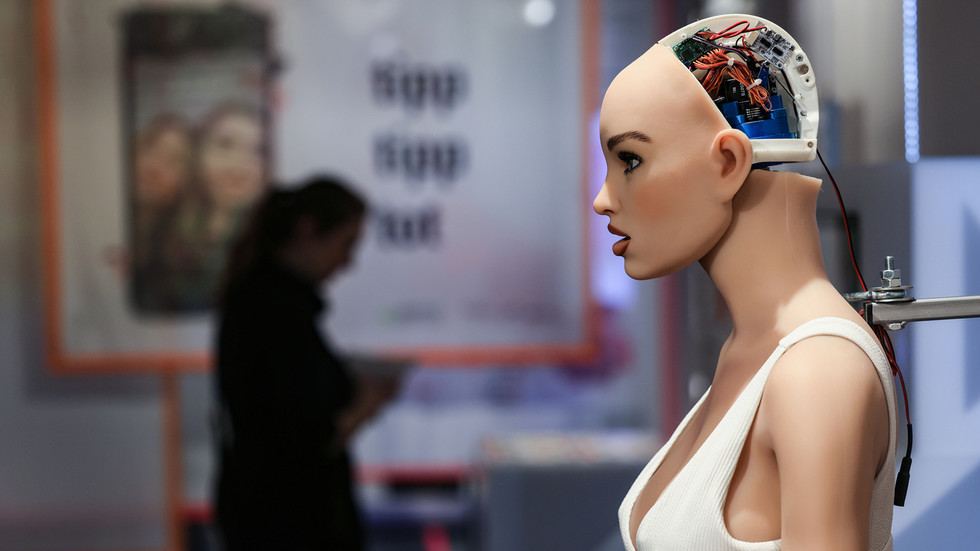
Love and relationships could soon be “redesigned,” according to Mo Gawdat

FILE PHOTO. The digital sex doll “Harmony” at an exhibition © Getty Images / Oliver Berg
The latest advances in artificial intelligence could soon lead to sex dolls coming “alive” and dating sites being flooded with realistic AI avatars, former Google X chief business officer Mo Gawdat has claimed.
During a recent interview on the Impact Theory podcast, the former executive at Google’s R&D department said that the convergence of AI, virtual and augmented reality may end up altering the very fabric of society and creating a “very significant redesign of love and relationships.”
Asked by host Tom Bilyeu about the near-term disruptions that AI cold cause, especially regarding sex, Gawdat noted that alternative sexual activity is already here and that people need only to obtain a VR headset and see how incredibly realistic sex simulations have become.
“Just think about all the illusions that we are now unable to decipher,” Gawdat stated, adding that “sex happens in the brain at the end of the day and the physical aspect of it is not that difficult to simulate.”
“If we can convince you that this sex robot is alive or that sex experience in a virtual reality headset or an augmented reality headset is alive, then there you go. Go a few years further and think of Neuralink and other ways of connecting directly to your nervous system, why would you need another [human] being in the first place?” Gawdat asked.

Read more
The former CBO argued that the joy of companionship and sexuality are “all signals in your brain” and suggested that such activity could be simulated, much like scientists can now “very easily” simulate how to move muscles and copy other brain signals.
Gawdat went on to dismiss the “huge debate” about AI sentience or how people should interact with it. “Does it matter if the Morgan Freeman talking to you on the screen is actually Morgan Freeman or an AI-generated avatar if you’re convinced that it is Morgan Freeman?”
He also noted that there are big business incentives in further developing AI technology, especially in the realm of dating apps, where apps like Replica – an AI chatbot that learns to mimic users’ writing styles in order to develop bonds with them – already boast some 2 million users.
“Because there is money in it, what would prevent the next dating app from giving you avatars to date?” he asked. “A lot of people will try it,” Gawdat claimed, admitting that he doesn’t know if such “eerie” advancements are for better or worse.




